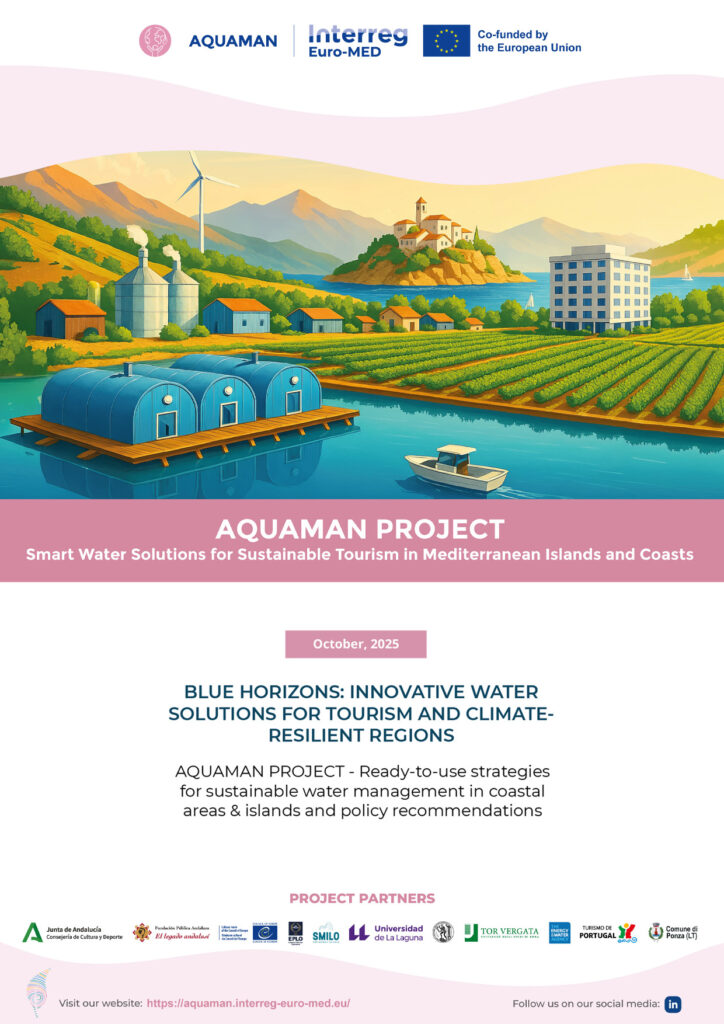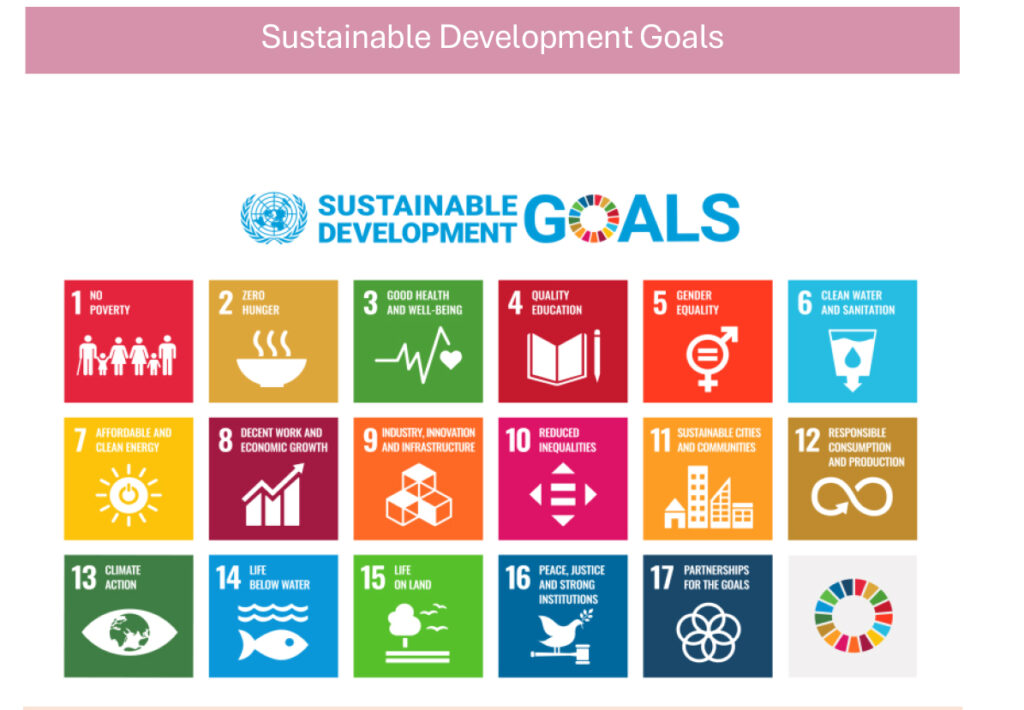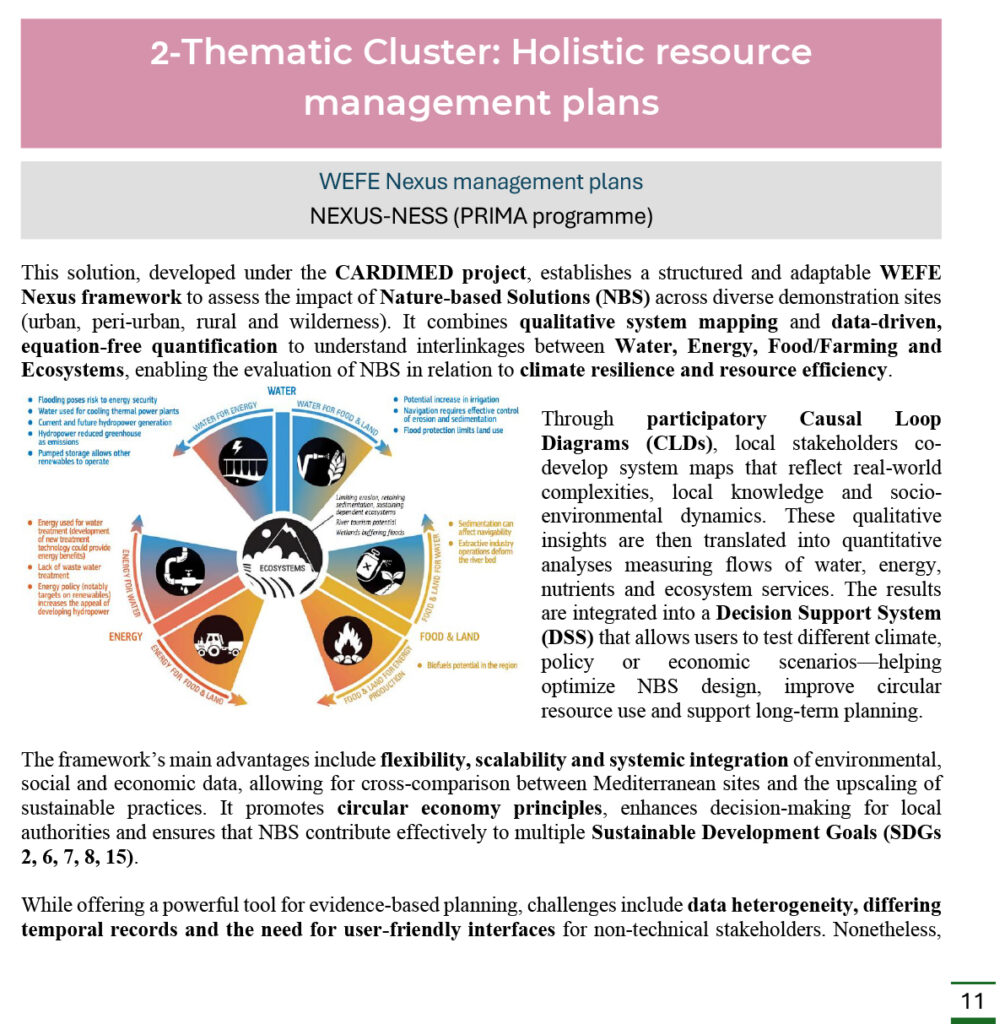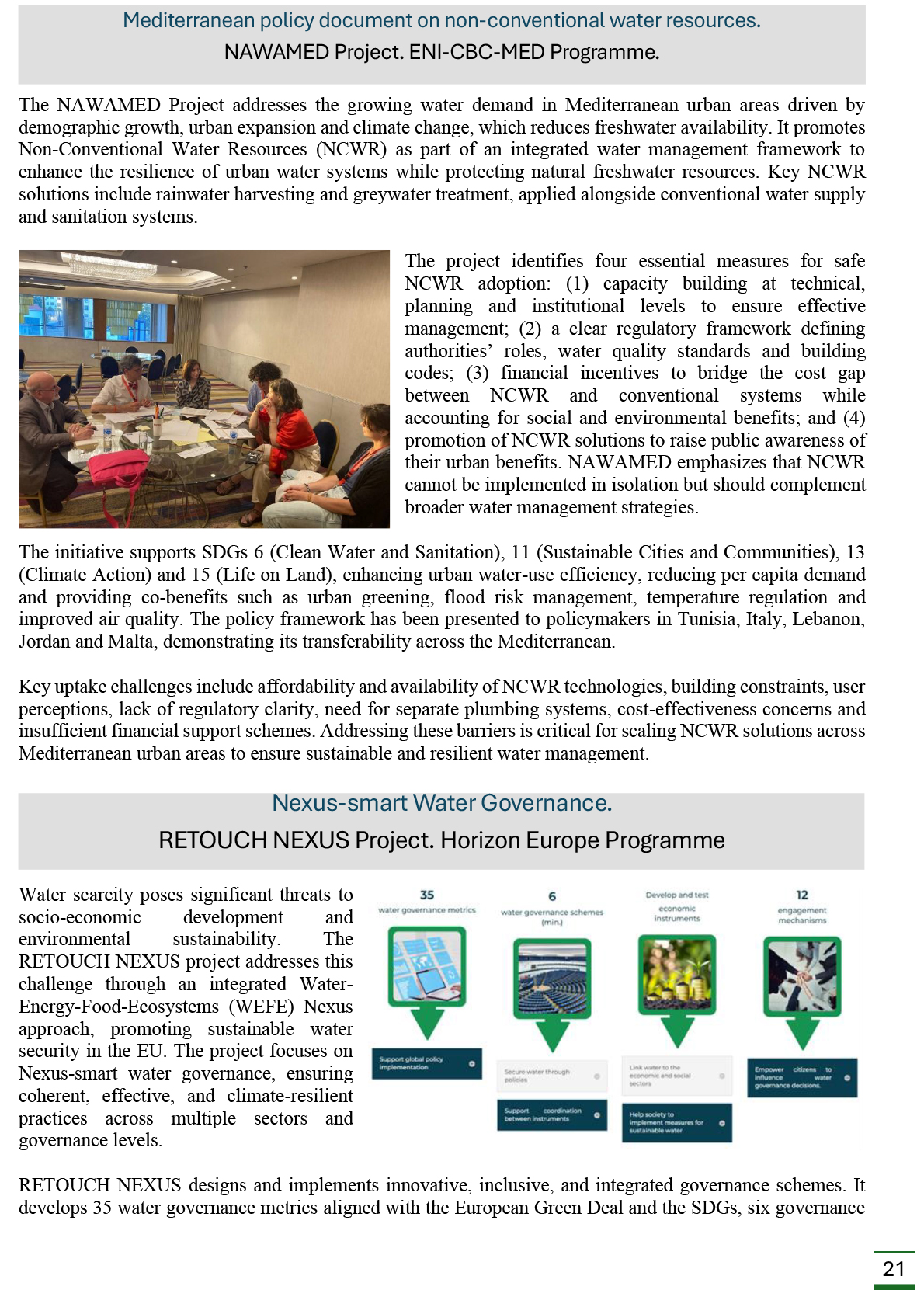“Blue Horizons: Innovative water solutions for tourism and climate-resilient regions”, a document produced by the Interreg Euro-MED AQUAMAN Project (AQUAtic systems’ evaluation for the Mitigation of wAter scarcity in mediterranean islaNds and coastal tourist destinations under severe pressure) is a portfolio of “ready-to-use” and adaptable solutions comprising technical interventions, holistic resource management plans, and, with a strong focus on policy recommendations.
Its alignment with the Sustainable Development Goals (SDGs) underscores its role as both a technical and a governance-oriented instrument. Last, this Catalogue is not merely a technical compendium but wants to be a policy-influencing framework, designed to shape the conditions under which nature-based and hybrid water solutions can thrive.
A strategic repository for sustainable water management solutions
Blue Horizons: Innovative water solutions for tourism and climate-resilient regions, a document produced by the Interreg Euro-MED AQUAMAN Project (AQUAtic systems’ evaluation for the Mitigation of wAter scarcity in mediterranean islaNds and coastal tourist destinations under severe pressure) serves as a comprehensive and strategic repository designed to advance sustainable water management in Mediterranean regions, particularly in tourism-driven and climate-vulnerable territories. It consolidates a portfolio of “ready-to-use” and adaptable solutions comprising technical interventions, holistic resource management plans, and, with a strong focus on policy recommendations aimed at overcoming institutional, regulatory, and societal barriers.
Its primary purpose is to enable the valorization of non-conventional water sources, the reduction of water consumption, and the minimization of distribution losses through integrated, site-specific strategies. By aligning innovative technologies with supportive governance frameworks, the catalogue facilitates both immediate implementation and long-term policy transformation.
This document has been coordinated by the partner National Technical University of Athens supported by the El legado andalusí Andalusian Public Foundation (Regional Ministry of Culture and Sport of Spain, LP) with the solutions provided by all partners and Associated Partners of Interreg Euro-MED AQUAMAN Project:
- European Law Organisation (EPLO, Greece),
- Small Islands Organisation (France),
- University of La Laguna – Department of Applied Economics and Quantitative Methods (Spain),
- University of Rome Tor Vergata – Department of Civil Engineering and Computer Science (Italy),
- Energy and Water Agency (Malta),
- Tourism of Portugal and Ponza Municipality (Italy),
- Last, with the involvement of the Regional Ministry of Tourism and Andalucia Exterior (Andalusia, Spain), Associated Partner.


KEY FEATURES AND POLICY RECOMMENDATIONS
A key feature is its extensive section on nature-based and hybrid interventions, including constructed wetlands for wastewater treatment and reuse (from the projects HYDROUSA and CARDIMED, Horizon Programme), rainwater harvesting systems for agriculture and residential use (HYDROUSA and CARDIMED, Horizon Programme), and green roofs for stormwater management and urban cooling (Interreg Italia-Malta). These solutions deliver technical efficiency and environmental co-benefits, such as biodiversity enhancement, carbon sequestration, and improved climate resilience.
The document contains another section devoted to the Holistic Resource Management Plans, which provide structured approaches to water scarcity mitigation and cross-sectoral resource governance based on the WEFE Nexus principles. These plans create a framework for local authorities and stakeholders to manage water resources in a balanced and sustainable manner.
However, what sets this catalogue apart is its strong policy dimension. It includes carefully crafted policy recommendations derived from tools such as the White Paper on Governance and Climate Adaptation by Dialogue4Tourism Project (Interreg Euro-MED Program) or towards a zero-impact island.
The ISOS project (Interreg Italy-France Maritime Program) provides a strategic framework for improving water management on small islands through policy recommendations and technical guidelines including an analysis of water challenges (quality, availability, wastewater), case studies, examples and exchanges among island territories and practical guidance for rainwater collection, wastewater reuse and decentralized water treatment systems.
All these documents act as enablers for systemic change by proposing regulatory reforms, economic incentives, and institutional collaborations that facilitate the transition from conventional, centralized water management models to decentralized, circular approaches.

Practical ideas for transferring solutions
To finish, includes a section on Training & engagement programme highlighting here the NEXUSSHARE Platform, a digital and methodological platform designed to foster collaborative learning, knowledge sharing, and co-production among diverse stakeholders involved in water, energy, food, and ecosystem (WEFE) resource management. Includes to the water scarcity mitigation plan collected in Water Rethink project (Green Fund, Hellenic Ministry of Environment and Energy, Natural Environment Programme). Another key tool for the engagement of stakeholders is Interreg Euro-MED Academy.
This catalogue will be followed by a transfer feasibility study that further will support this process by mapping adoption pathways, identifying responsible authorities, and proposing policy-driven mechanisms to ensure effective knowledge transfer and practical implementation across diverse Mediterranean contexts.
This document brings together, therefore, a wide range of strategies, projects, and initiatives that collectively aim to foster sustainable water management across the Mediterranean region. It compiles actions funded under major European frameworks, such as Interreg Euro-MED Program, Interreg Italia-Malta Program, Interreg Italy-France Maritime Program, Horizon 2020, Horizon Europe, PRIMA Programme, LIFE integrated Projects, together with other national initiatives and locally driven measures.
Each of these projects contributes unique expertise, tools, and financial mechanisms that complement one another. For instance, innovative research projects like FIT4REUSE and NEXUS-NESS provide technical knowledge, while operational projects such as Remedies (Horizon 2020 Program) enable large-scale implementation of water efficiency and circular management strategies.
The document put a particular emphasis on the Interreg Euro-MED Programme (2021–2027), which plays a pivotal role in promoting transnational cooperation across Mediterranean countries. Through this programme, diverse regions are supported in adopting innovative, nature-based, and resource-efficient solutions that address water scarcity, enhance resilience, and reduce environmental pressures in tourism-driven and climate-sensitive areas.
Its alignment with the Sustainable Development Goals (SDGs) – including Clean Water and Sanitation, Climate Action, Sustainable Cities and Communities, and Responsible Consumption and Production – underscores its role as both a technical and a governance-oriented instrument.
Last, this Catalogue is not merely a technical compendium but wants to be a policy-influencing framework, designed to shape the conditions under which nature-based and hybrid water solutions can thrive. By bridging science, technology, and policy, it provides a pathway towards circular, climate-resilient, and equitable water management systems across the Mediterranean.



